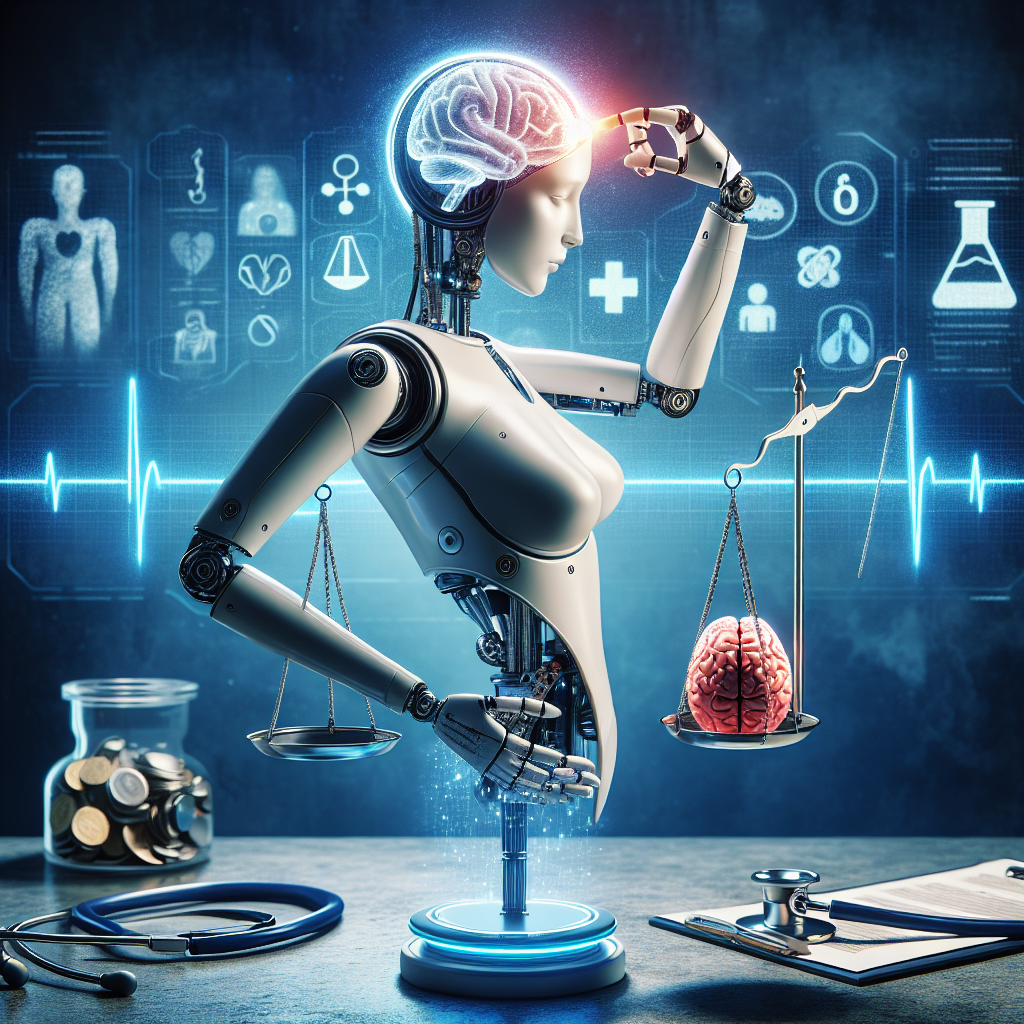Artificial Intelligence (AI) has revolutionized many aspects of our lives, from improving customer service to enhancing medical diagnostics. In the field of mental health, AI has the potential to greatly benefit individuals by providing more accurate and timely diagnoses, improving treatment options, and increasing access to mental health care. However, there are also risks associated with the use of AI in mental health, particularly in terms of misdiagnoses and stigmatization.
Misdiagnoses in mental health can have serious consequences, leading to improper treatment and potentially exacerbating symptoms. AI algorithms used in mental health diagnostics rely on data inputted by individuals, such as symptoms reported during assessments or information gathered from social media profiles. This data can be incomplete or misleading, leading to inaccurate diagnoses. Additionally, AI algorithms may not be able to accurately interpret subtle nuances in behavior or emotions that are crucial for a proper diagnosis.
Furthermore, there is a risk of stigmatization associated with the use of AI in mental health. Stigma surrounding mental health is already a significant barrier to seeking treatment, and the use of AI algorithms to diagnose mental health conditions may further perpetuate negative stereotypes and biases. For example, if an individual is incorrectly diagnosed with a severe mental health disorder based on AI algorithms, they may face discrimination or be treated differently by others.
It is important for mental health professionals and AI developers to be aware of these risks and take steps to mitigate them. This includes ensuring that AI algorithms are regularly updated and validated with accurate data, as well as providing training for mental health professionals on how to interpret and use AI-generated diagnoses effectively. Additionally, it is crucial to educate the public about the limitations of AI in mental health and emphasize the importance of seeking a second opinion from a qualified mental health professional.
FAQs:
Q: Can AI accurately diagnose mental health conditions?
A: AI algorithms have shown promise in diagnosing mental health conditions, but there are limitations to their accuracy. It is important for individuals to seek a second opinion from a qualified mental health professional for a proper diagnosis.
Q: How can AI algorithms be improved to reduce the risk of misdiagnoses?
A: AI algorithms can be improved by regularly updating and validating them with accurate data. Additionally, mental health professionals should be trained on how to interpret and use AI-generated diagnoses effectively.
Q: How can individuals protect themselves from the risks of misdiagnoses and stigmatization associated with AI in mental health?
A: Individuals can protect themselves by seeking a second opinion from a qualified mental health professional, educating themselves about the limitations of AI in mental health, and advocating for their own mental health care needs.
In conclusion, AI has the potential to greatly benefit individuals in the field of mental health by providing more accurate diagnoses and improving treatment options. However, there are risks associated with the use of AI in mental health, including misdiagnoses and stigmatization. It is important for mental health professionals and AI developers to be aware of these risks and take steps to mitigate them in order to ensure the well-being of individuals seeking mental health care.

